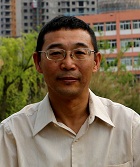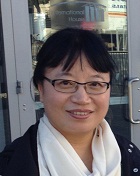Hello, welcome to visit Shanghai Forum
Co-organizers:
Center for National Minorities Studies, Fudan University;
The Fudan Institute of Anthropological and Ethnological Studies;
Fudan-UC Center on Contemporary China;
Fudan-European Centre for China Studies
Introduction of the Chair:

Naran Bilik
Naran Bilik, the director of Center for National Minorities Studies At Fudan University, Director of the Fudan Institute of Anthropological and Ethnological Studies, Professor of Anthropology of Fudan University. Research areas: ethnicity and nationalism, minority education, language and culture. Important publications in English: Robyn Iredale, Naran Bilik, et al, Contemporary Minority Migration, Education and Ethnicity in China, Cheltenham: Edward Elgar, 2001; The Worshipping of Chinggis Khan: Ethnicity, Nation-State, and Situational Relativity, China: An International Journal, Vol11, No2, August 2013; How do you say “China” in Mongolian?— Toward a deeper understanding of multicultural education in China, James Leibold and Chen Yangbin eds., Minority Education in China: Balancing unity and diversity in an era of critical pluralism, Hong Kong U Press, 2014.

Fan Lizhu
Dr. Fan Lizhu is a sociologist of religion who holds a PhD from the Chinese University of Hong Kong. She is also the Director of Center on Globalization and Religious Studies at Fudan University. She is considered as one of pioneers studying on Chinese popular religion and teaching Sociology of Religion in China over past 20 years. Her ethnographic work focuses on contemporary expressions of Chinese traditional religious heritage. She has published widely in both Chinese and international journals, and edited several volumes of cross-cultural and cross-disciplinary research papers.

Liu Chunrong
Liu Chunrong is the Associate Professor of Political Science at School of International Relations and Public Affairs of Fudan University. He serves as Executive Vice Director of Fudan-European Centre for China Studies at University of Copenhagen. He is interested in Chinese politics and political sociology, and has published widely on China’s governance transformation at local and grassroots levels. He co-edits the Chinese Logic of Collective Actions (in Chinese, Shanghai People’s Press, 2012) and is completing a book on new forms of local governance in urban Shanghai.
Theme Interpretion:
We are living in the global world, which needs a deep understanding and communication between various cultures, religions and ethnic groups, especially when we emphasis the economic development by joint efforts among Asian countries with different cultural background. Just look at what happened in Paris on November 13, 2015. The economic development is not able to lead people into a good life if the world has no peace. People noticed that the economic globalization is, of course, only part of the story with bloody listen. It is irrefutable that cultural diversity, including linguistic religious and ethnicity differences, are playing significant role among the international cooperation and even conflicts.
The prospect of one belt one road aims to further boost the economic prosperity and social development between China, Asia and the world. Almost every nation-state contains diverse ethnic groups, cultures and values, however, limited resources and complex political situations have resulted in competition and conflict along the line of religion and ethnicity. The future of communities’ destiny in Asia are tied together, which requests joint efforts and cooperation to address common issues that most of countries in the region have encountered.
This roundtable panel brings scholars from Asia, Europe and America to discuss approaches of addressing issues related with religion, ethnicity and culture. These approaches range from various disciplines, including history, anthropology, politics and gender study. It aims to promote in-depth discussions and understandings about Asia’s today and tomorrow, as well as how it relates to the present and future of the world.
Our round table session consists of 2 parts:
Part I, chaired by Prof. Naran Bilik, focuses on the issues of culture and ethnicity related with the construction of the Asian Community in general.
Part II, co-chaired by Profs. FAN Lizhu and LIU Chunrong, with a focus on the cultural and religious dimensions in the One Belt One Road Initiative in particular.